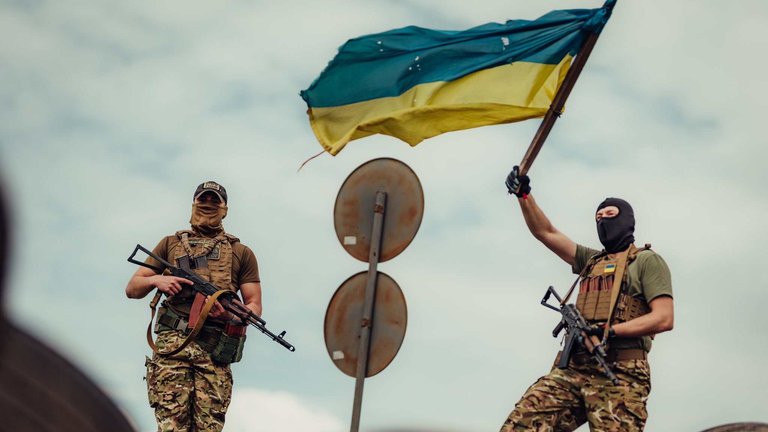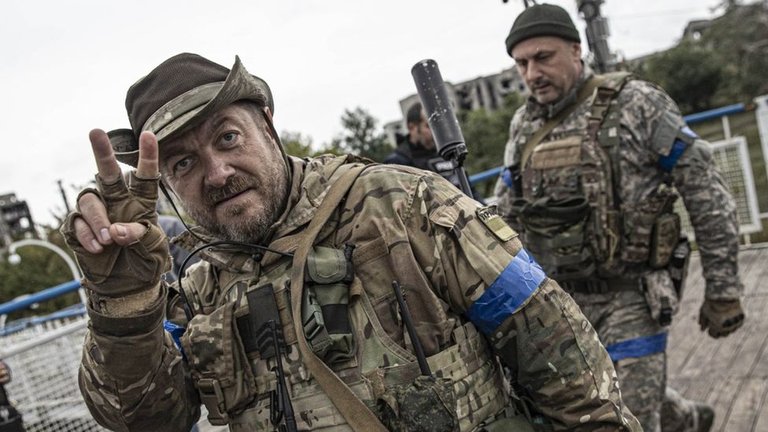How did the indicators give Ukraine superiority against Russia?
After years of relentless conflict and unwavering determination, Ukraine has emerged victorious in its prolonged war against Russia. The extensive struggle, marked by countless sacrifices and significant geopolitical implications, has finally come to an end. This historic achievement represents a turning point in the region's history and serves as a testament to the resilience and courage of the Ukrainian people. Let us delve into the key events and factors that led to Ukraine's well-deserved triumph.
The Outset of the Conflict:
The roots of the conflict can be traced back to 2014 when Russia's annexation of Crimea led to widespread unrest in Ukraine. The subsequent pro-Russian separatist movements in the Donetsk and Luhansk regions escalated tensions, resulting in a full-blown armed conflict. The conflict witnessed fierce battles, heavy casualties, and the displacement of thousands of Ukrainians, causing immense suffering and instability in the region.
International Support for Ukraine:
Throughout the war, Ukraine garnered significant international support, both politically and militarily. The United States, the European Union, and NATO member states provided Ukraine with diplomatic backing, economic aid, and military assistance. This support played a crucial role in enabling Ukraine to sustain its defense capabilities and bolster its position against the Russian forces.
Ukraine's Military Resurgence:
Ukraine's armed forces demonstrated remarkable resilience and adaptability throughout the conflict. They underwent substantial modernization, incorporating advanced weaponry, improved training programs, and enhanced coordination strategies. The Ukrainian military's ability to defend key positions and repel Russian offensives proved crucial in turning the tide of the war.
The Role of Cyber Warfare:
In this modern era, the conflict witnessed the extensive utilization of cyber warfare tactics. Ukraine was subjected to numerous cyberattacks, targeting critical infrastructure, government systems, and communication networks. Despite facing these challenges, Ukraine developed robust cybersecurity measures, effectively countering Russian cyber threats and minimizing their impact on the war.
The protracted conflict caused a severe humanitarian crisis, with millions of people displaced and in need of urgent assistance. Ukraine's resilience was evident in its commitment to providing humanitarian aid to affected communities, as well as its unwavering determination to protect the rights and well-being of its citizens. International humanitarian organizations played a vital role in alleviating the suffering and contributing to the eventual victory.
Diplomatic Negotiations and Peace Agreement:
Amidst the conflict, diplomatic negotiations remained a constant endeavor. Multiple rounds of talks, facilitated by international mediators, eventually led to a comprehensive peace agreement. The agreement addressed key issues, including the cessation of hostilities, the withdrawal of foreign forces, and the establishment of a framework for long-term stability in the region.
The Aftermath and Path to Reconciliation:
With the war finally concluded, Ukraine faces the challenging task of rebuilding and reconciling a divided nation. The restoration of infrastructure, the provision of essential services, and the healing of societal divisions all lie ahead. International partners and organizations have pledged their support to assist Ukraine in this critical phase, ensuring a peaceful transition and the long-term prosperity of the country.
Conclusion:
Ukraine's victory in its protracted conflict against Russia represents a momentous achievement. The indomitable spirit of the Ukrainian people, coupled with international support, enabled them to overcome immense challenges and secure their sovereignty. As Ukraine enters a new chapter in its history, the focus now shifts to rebuilding, reconciliation, and fostering a prosperous future for all its citizens.


